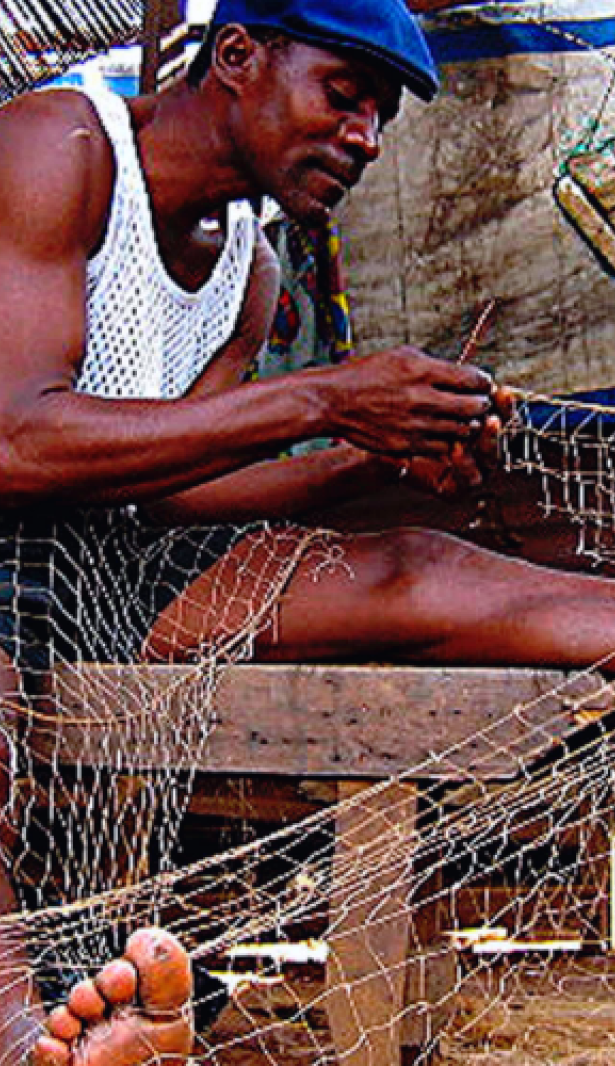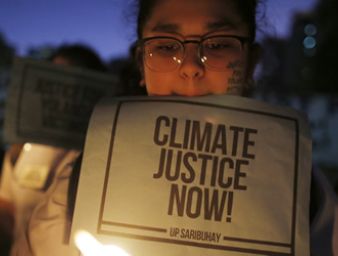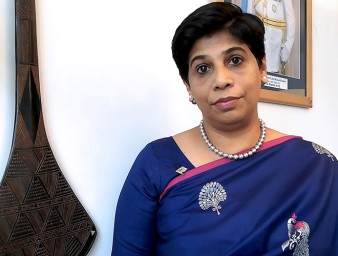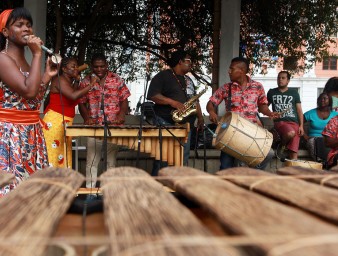Guinea pursues a healthy environment and development for human rights
14 July 2021
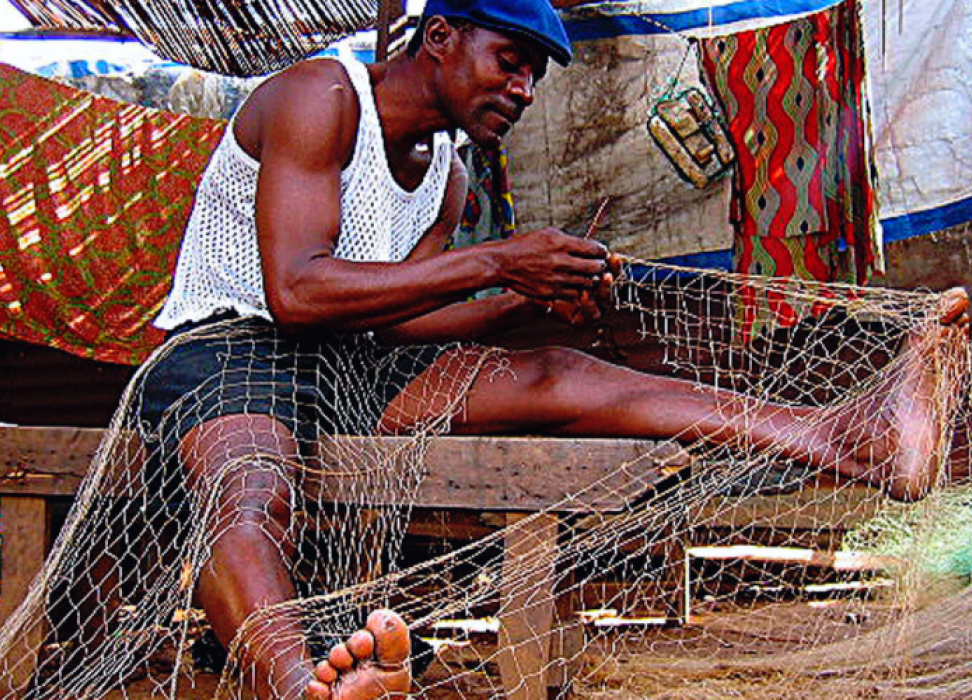
The third edition of the Hernán Santa Cruz Dialogue looked at the contribution of development to human rights in Guinea. Like many countries across the globe, Guinea has enshrined the right to a healthy environment in its Constitution.
Saikou Amadou Tidiane Diallo recalled the day he decided to act against climate change. It was on his birthday, almost three years ago.
“I had heard about pollution in the media. They were talking about the importance of trees in the fight against global warming. From then on, I started noticing that when I was under a tree it did not feel the same as when I was in the street,” Diallo said. “Trees give us shade and cool air that I could not find anywhere else.”
In November 2018, Diallo created the “One birthday, one tree” challenge. He planted a Flame Tree (Flamboyant) in Kakimbo forest, a few miles north-east of Conakry, Guinea’s capital. That same month, he created his NGO, Agir contre le réchauffement climatique, Acting Against Climate Change.
“I used to completely ignore the consequences of my actions on the environment. When I drank from a sachet of water, for example, I would discard it on the floor. My wife and I would use a lot charcoal for cooking, and when I got home, I would turn on the lights even during the day. I was unaware of the importance of trees,” Diallo said.
In June this year, Diallo and his organization won second place out of 3,000 applicants to the African Ecology Awards held in Abidjan, Cote d’Ivoire, in the personal commitment, associations and cooperatives category. In 2020, the organization raised awareness about climate change in 50 schools in Conakry and, with the help of participants across Guinea, planted over 2,000 trees during the Muslim feast of Eid al-Adha, also known as Tabaski in West Africa. Diallo and his wife now use gas for cooking, despite its financial cost to their household.
Creating unique synergies to advance the right to development
Diallo’s home country, Guinea, recently hosted the third in a series of discussions on the right to development, also known as the Hernán Santa Cruz Dialogue, under the patronage of President Alpha Condé and in collaboration with UN Human Rights. UN Human Rights launched the first Hernán Santa Cruz Dialogue in 2020 as a new platform for opinion leaders and policy makers to exchange progressive ideas, experiences and practices on economic and social rights, the right to development and the Sustainable Development Goals, linking them to contemporary challenges.
The dialogue is named after Hernán Santa Cruz, a Chilean diplomat who was an early architect of the UN human rights system. He was also one of the drafters of the Universal Declaration of Human Rights and helped to ensure the inclusion of economic and social rights in that seminal document.
“Hernan Santa Cruz was right to insist on economic, social and cultural rights alongside civil and political rights. We need all human rights based on the human being as actor and beneficiary, solidarity, equity, sovereignty and self-determination of peoples,” Guinea’s President, Alpha Condé, said in his opening remarks.
One of the themes under discussion at this year’s conference was the link between the right to development, climate change and environmental protection. In 1992, the Rio Declaration on Environment and Development recognized that the right to development was central to equitably meeting the developmental and environmental needs of present and future generations. The Declaration further stated that the special situation and needs of developing countries, particularly the least developed and those most environmentally vulnerable, should be given special priority.
Guinea has been playing a central role in the international arena in relation to the right to development. It currently holds the presidency of the G77+China group, and it is the first country to initiate a pilot project on the operationalization of the right to development. Guinea is home to rich ecosystems and abundant natural resources, which are critical to people’s livelihoods. It was the second country, after Mali, to ratify the first legally binding agreement enshrining that right, the African Charter on Human and Peoples’ Rights. The Charter recognizes that “All peoples shall have the right to their economic, social and cultural development with due regard to their freedom and identity and in the equal enjoyment of the common heritage of mankind” (Article 22), and that “All peoples shall have the right to a general satisfactory environment favourable to their development” (Article 24).
The first Hernán Santa Cruz Dialogue took place in Sudan in 2020. The series will run until 2030. The conference in Guinea adopted a series of recommendations to promote the right to development internally and globally, including through South-South cooperation.
Adopting a rights-based approach to sustainable development to counter crises
The conference also took place at a time when the response to the COVID-19 pandemic, including the distribution of vaccines, has shown a growing North-South divide. The response to the COVID-19 crisis presents an opportunity to support improved social protection measures, advance efforts to fulfil human rights, realize the Sustainable Development Goals, and promote ambitious environmental action.
Opening the Hernán Santa Cruz Dialogue in Conakry via video message, UN Human Rights Chief, Michelle Bachelet, said that the pandemic has important lessons to teach.
“In every country and region, it has demonstrated that advancing the right to development, and fixing the root causes of poverty, inequalities, health and social crises and environmental degradation will promote the broader goals of peace, justice and sustainable development,” she said. “These measures can be supported with steps to expand fiscal space, including by combatting corruption. By ensuring a just transition to a sustainable economy, such policies invest in the well-being and dignity of the people – surely the best investment of them all.”
UN Human Rights has been supporting rights-based action for people and planet in Guinea, including a human rights-based approach to the COVID-19 response and supported the effective enjoyment of economic, social and cultural rights, the right to a healthy environment and the right to development in the context of extractive industries and mining.
Bachelet commended Guinea for including the right to a healthy environment in its Constitution, and further encouraged the country to take “measures to effectively promote that right as a key factor in fulfilling the promise of sustainable development,” as well as implement “laws and regulations that are grounded in human rights to help address challenges resulting from climate change, soil erosion and extractive industries.”
The grandson of Hernán Santa Cruz, Maximiliano, gave introductory remarks to the conference, recalling his grandfather’s mission: uniting all humanity in a spirit of solidarity, in dignity and rights.
“His mission to advance better standards of life in larger freedom is ever more significant for the people of Guinea, as for people everywhere,” Maximiliano Santa Cruz added. “Improving income and human assets and overcoming economic and environmental vulnerability can contribute decisively to the enjoyment of all human rights to the peoples – men, women and children - of this and other least developed countries.”
14 July 2021
